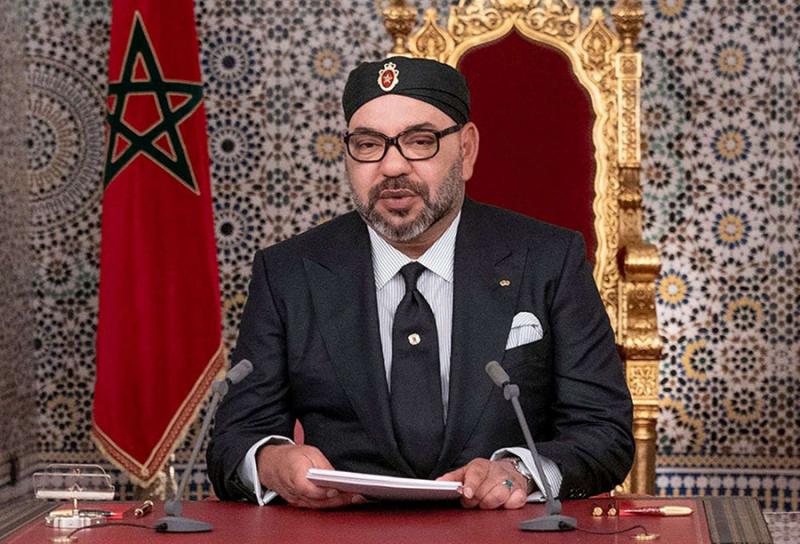Morocco embraces eco-tourism for sustainability and increased yield

Here in Morocco’s Agafay region, tourists get ready for the ultimate desert experience – a camel ride.
It’s the best mode of transport for exploring the local area, and an example of the eco-tourism activities the North African nation is trying to promote.
In June, Morocco’s tourism Minister Fatim-Zahra Ammor announced that sustainability is a paramount focus for the country’s tourism sector.
Eco-tourism is slowly expanding in Morocco, especially in the Agafay region, which is approximately 35 kilometres from Marrakech.
During the first half of June, Morocco received 17.6 million tourists, according to the Tourism Ministry, with ecotourism accounting for 5% of this number. Around 3% of the ecotourism is here in the Agafay region.
One of the region’s first eco-tourism projects was Kasbah Agafay Hotel and Spa – a traditional-style Kasbah, offering guests the opportunity to soak in the local culture through various activities.
Owner Abdessalam Damoussi bought the centuries old stone house in 1996 and spent four years renovating it as sustainably as possible, using natural materials sourced locally.
It opened in 2000 and was the first project of its type in the Agafay desert – a hotel celebrating the nature and community surrounding it.
Damoussi says the project was inspired by a book he read highlighting the importance of the connection between humans and the land.
“I have relied on a book written by a friend of mine, Prince Sultan bin Salman, who wrote an extraordinary book called ‘Back to Earth,’ and this was like my instrument that I used to do this work, I studied it, I did research, and in it, he really goes profoundly on why man should be back to Earth,” he says.
Since 2018, other tourism businesses have begun to apply similar ideas in the same area, which is currently witnessing an influx – Damoussi’s Kasbah welcomes around 5,000 tourists per year.
Damoussi receives tourists from all over the world, showing them how to embrace and preserve the natural environment surrounding them.
Youssef Koubaa, an Algerian tourist from Belgium, is visiting Kasbah Agafay.
He says Morocco has plenty to offer and can compete with other eco-tourism hotspots.
“For ecological tourism I visited Indonesia, Thailand and many Asiatic countries, but I liked too much this place in Morocco, it is really a wonderful place and the nature, especially the air, is very clean,” says Koubaa.
The experiences offered to guests here include camel and horse riding, hiking, performances by local musicians, spa and hammam treatments and cooking classes.
The cooking class includes access to their garden, which is rich in organic vegetables, fruits and natural herbs.
These ingredients are picked and then used to prepare meals.
Guests, with the help of a chef, prepare the food in an open kitchen in the middle of the garden.
The experience allows visitors to learn about the source of the food and its cultural significance.
“I had a wonderful experience with the chef who allowed me to learn cooking, and suddenly, I know what I eat, I know where it comes from,” says Laurent Olier, a tourist from France.
In addition to rooms inside the Kasbah, traditional tents are also available for guests in the grounds. These tents and the furniture they include are made of natural materials, such as leather, wood and wool.
“It’s a very magical place and one that you don’t find everywhere in the world,” says Avner Sabbn, a tourist from France.
“It’s a real cinema setting, the welcome is wonderful, we really have the impression of being actors in a film in this place of peace, nature, calm,” adds fellow French tourist, Vincent Bular.
In the Kasbah, the stone construction – with thick walls, high wooden ceilings and tall windows – keeps the interior cool in summer and warm in winter, which reduces energy consumption, according to Damoussi.
He’s continuously looking for ways to make his business even more sustainable.
“We have windows when to switch on electricity. We’re looking seriously at solar panels, for getting the water from the wells, also for irrigation, drip-by-drip irrigation. We use no pesticide in the whole property. We never used any pesticides,” Damoussi says.
Nabil Bouraissi, an independent tourist adviser and manager of a hotel in Rabat, says ecotourism is playing an important role in the development of tourism in the area as more in the industry switch on to its potential for extra revenue.
“Ecological tourism now represents a small percentage compared to other types of tourism. But now there are a group of hotels and hotel chains that want to get involved in this tourism because of its positive effects. I mean we can bring other tourists. We can have other incomes. For example, not at peak times, this ecological tourism can bring us new tourists,” he says.
While Damoussi is pushing the ecological side of his business, he sees it as a complimentary offer to traditional tourism.
“Ecological tourism, we cannot consider that it’s going to be competition for classical tourism. I think it’s A – complementary, and B – working hand-in-hand and try to bring classical tourism to do things that ecological tourism does.”
In June, Morocco’s tourism Minister Fatim-Zahra Ammor told the House of Representatives that plans were underway for a national green growth program called “Go Siyaha,” which will provide tourist businesses with opportunities to adopt energy-efficient practices.
Ammor said Morocco aims to attract 26 million tourists by 2030.
By Africanews



